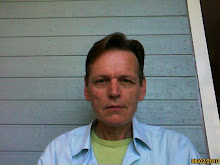By Robert Fisk
02/06/06 "The Independent" -- -- After Syria, the fires fanned by Denmark's anti-Prophet cartoons spread to Lebanon yesterday with sectarian intensity.
Anger flashing through the Muslim world over the weekend saw protesters burn Danish flags and attack buildings from Lahore to Gaza. The Islamic Army in Iraq, one of the main insurgent groups, made a blood-curdling call yesterday for violence against citizens of countries where caricatures of the Prophet Mohamed have been published.
"We swear to God, if we catch one of their citizens in Iraq, we will cut him to pieces, to take revenge for Prophet," it said in an unverified internet statement.
In Lebanon yesterday, 2,000troops fought demonstrators in the heart of Christian Beirut during the day as the Danish consulate was set on fire and a large church was attacked by a mob. Other demonstrators headed for the Lebanese foreign ministry. One protester at the consulate was trapped by flames and died after jumping from the third floor.
Yestereday's violence may have been inspired by the previous day's assaults on the Danish and Norwegian embassies in Damascus - or were perhaps encouraged by the same Baath party which must have originally permitted the Syrian demonstrations to take place.
More likely, the crowds in both cities were allowed by the authorities to stage protests, but the demonstrators quickly became overwhelmed as Sunni extremists - in Lebanon, perhaps from the Salafist Hezb al-Tahrir party in Tripoli, and equally Wahhabi-minded Palestinians from the Ein el-Helweh refugee camp - arrived with sticks and stones to assault the Danish property and then to attack the St Maroun church and march on the Lebanese foreign ministry.
If this is true, it shows how quickly two nationalist Arab governments can be challenged by Islamists within their own countries. The 2,000-strong Lebanese security forces had to be deployed in east Beirut to fire tear gas and live rounds into the air to hold back the rioters.
For Lebanon, divided along sectarian lines as it has been since its creation by the French in the 1920s, it was a grim and bitter day - perhaps the worst since ex-Prime Minister Rafik Hariri was assassinated on 14 February last year - which brought Muslim demonstrators into the centre of Christian east Beirut where the Danish consulate is - or rather was - located. Burning fire engines and smashing cars parked in the streets, however, brought back ugly memories of the 15-year Lebanese civil war.
Little wonder, then, that Charles Rizk, the Justice Minister, asked angrily: "What is the guilt of the people of Ashrafieh for cartoons published in Denmark?'' Ashrafieh, needless to say, is an almost entirely Christian sector of Beirut.
Fouad Siniora, the Lebanese Prime Minister - who, under the country's unwritten constitution, must be a Sunni - insisted that this was not the way for Muslims to express their anger. One Sunni prelate who appeared on the streets in a vain attempt to calm the demonstrators remarked that "they have done more damage to the name of the Prophet today than the cartoons in Denmark''.
Lebanon's Interior Minister, Hassan al-Sabaa, resigned yesterday, becoming the first political casualty of the crisis.
At least 30 people were arrested and the Lebanese authorities later announced - predictably - that most were "foreigners". Whenever any civil unrest occurs in Lebanon, foreigners are always blamed - just as they were throughout the civil war - although it will be interesting to see if there are any Syrians among their number. Christian politicians complain that the Lebanese government, which knew that there would be demonstrations, should have dealt more "firmly" with the demonstrators - for "firmly", read "fatally".
But, in fact, the Lebanese troops managed to avoid shooting any of the protesters dead; "martyrs" would only have provided room for more violent demonstrations - and yesterday's battle in east Beirut was in marked contrast to the way Israeli soldiers deal with Arab demonstrators. The Lebanese, far from firing bullets into the surging crowds, pushed them back with water cannons.
There is no doubting that those preposterous cartoons originally published in Copenhagen last September have lit a small inferno across the Middle East. In Nablus, Palestinian gunmen stormed the French cultural centre yesterday. In Qatar, the government announced it would no longer accept trade delegations from Denmark. Iran recalled its ambassador from Copenhagen.
Muslim demonstrators could be seen on the streets of Beirut yesterday with green banners bearing the legend: "Oh Nation of Mohamed, Wake Up!'' The danger for the West - as well as the dictatorships and semi-democracies of the Middle East - is that rather a lot of members of the nation of Mohamed will do just that.
Syria is a largely Sunni nation ruled by Alawites - a branch of Shiism - and it is not difficult to see how even minimum Baathist encouragement of Saturday's demonstrators quickly turned into a Sunni protest.The Norwegian embassy had demanded extra protection from Syria - but was not provided with the security forces it asked for. There will be many questions asked about this among Europeans in Damascus; for it is the same old problem: who runs Syria?
source: Information Clearing House

No comments:
Post a Comment